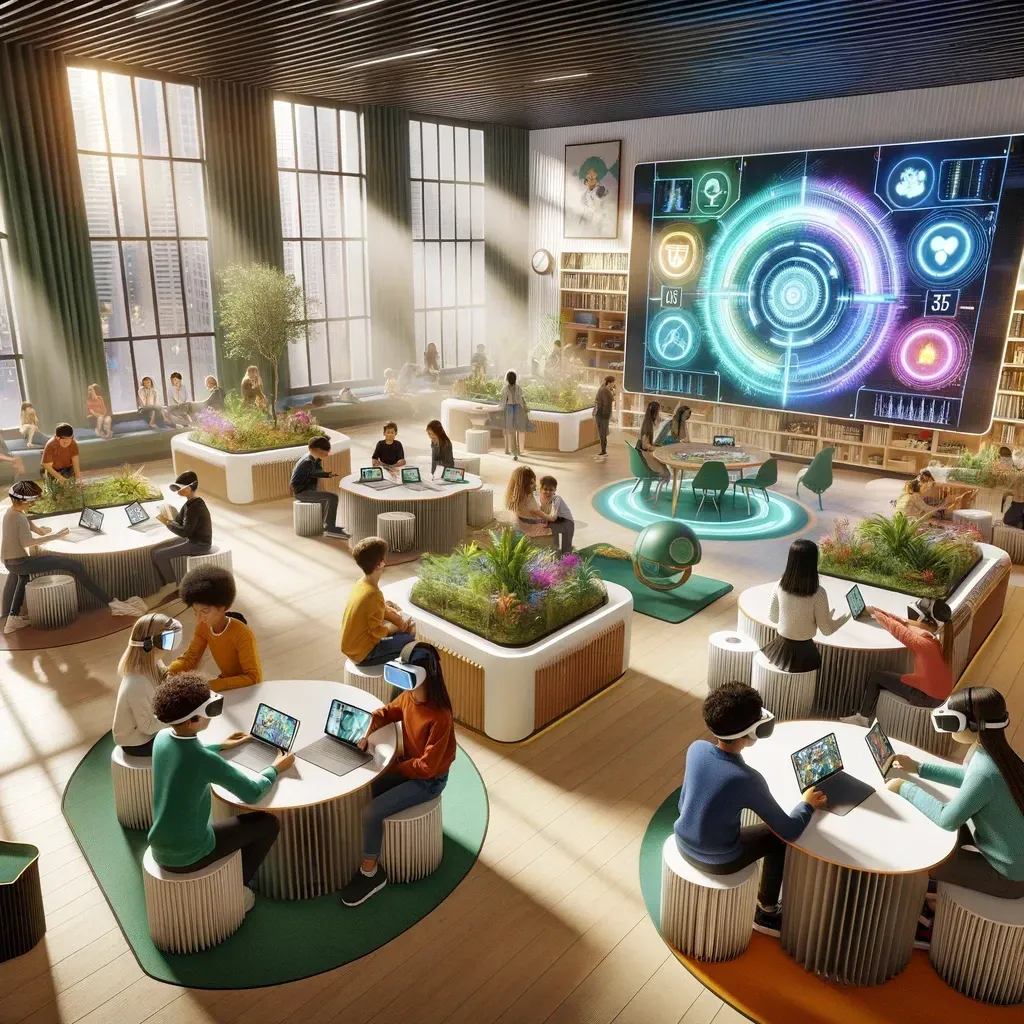
Shaping Tomorrow's Minds: The Evolution of the Future Classroom
The concept of education has continuously evolved, mirroring the changes in society, technology, and our understanding of learning itself. In envisioning the future classroom, we're not just predicting technological advancements but reimagining the entire educational landscape. This exploration seeks to illuminate the potential transformations in learning environments, highlighting how these changes will make education more effective, inclusive, and engaging.
The Heart of Innovation: Technology in Education
The integration of technology in education has been steadily increasing, but the future classroom takes this to a new level. Artificial Intelligence (AI) and Machine Learning (ML) stand at the forefront of this revolution. Imagine AI systems that adapt teaching methods and materials to each student's unique learning style and pace. The use of Virtual Reality (VR) and Augmented Reality (AR) will bring an unprecedented level of immersion and interactivity to learning, making abstract concepts tangible and historical events vividly alive.
Redesigning Learning Spaces: Flexibility and Nature
Tomorrow’s classrooms will break free from the rigid designs of the past. They will be dynamic, with modular furniture and technology that can be reconfigured to suit different teaching methods and learning activities. Integrating outdoor elements into learning spaces acknowledges the growing understanding of nature's role in well-being and education, promoting a connection to the environment from an early age.
Collaboration and Interaction: The New Norm
The future classroom will be a hub of collaboration and interaction. Smart surfaces and interactive whiteboards will enable students to work together in innovative ways, both in-person and remotely. The cloud will become an essential tool, allowing students to access educational resources and collaborate from anywhere, breaking down the walls of the traditional classroom.
Personalized Learning: Tailoring Education to the Individual
One of the most significant shifts in the future classroom is the move towards personalized learning. Using data analytics, educators will be able to track each student's progress and adapt teaching methods accordingly. Blended learning models, which combine traditional classroom teaching with online resources and interactive digital content, will offer a more personalized and flexible approach to education.
Beyond Academics: Developing Essential Life Skills
The future classroom will place greater emphasis on developing skills beyond traditional academics. Critical thinking, creativity, problem-solving, and emotional intelligence will become key components of the curriculum. This shift recognizes the importance of preparing students not just for exams, but for life in a rapidly changing world.
Sustainability and Eco-consciousness in Education
Sustainability will be a core principle of the future classroom. This includes both the physical design, utilizing renewable energy sources and sustainable materials, and the curriculum, where environmental education is integrated across subjects. Students will learn the importance of environmental stewardship as a fundamental part of their education.
Ensuring Accessibility and Inclusivity
Inclusivity and accessibility will be paramount. The future classroom will be designed to be accessible to all students, regardless of their abilities or backgrounds. Advanced assistive technologies, such as speech-to-text software or augmented communication devices, will support diverse learning needs, ensuring that every student has the opportunity to learn and succeed.
Global Connectivity and Cultural Exchange
Technology will enable students to connect and collaborate with peers across the globe, fostering a truly global perspective. Cultural exchange programs will be facilitated digitally, helping students develop a deeper understanding of different cultures and global issues.
Preparing for the Future
The future classroom will emphasize lifelong learning and adaptability. Students will be encouraged to develop a mindset of continuous learning, curiosity, and resilience, equipping them to navigate the complexities of the modern world.
Ethical and Privacy Considerations in a Connected World
As technology becomes more integrated into education, the importance of teaching digital citizenship and ensuring the privacy and security of student data will become more crucial than ever.
Conclusion
The future classroom is not just a dream; it's a blueprint for an educational system that adapts to the needs of the 21st-century learner. It represents a shift towards a more personalized, inclusive, and engaging learning experience, preparing students not just for academic success but for life in an ever-changing world. In this vision, education becomes not just a means to an end, but a lifelong journey of discovery, growth, and connection.




